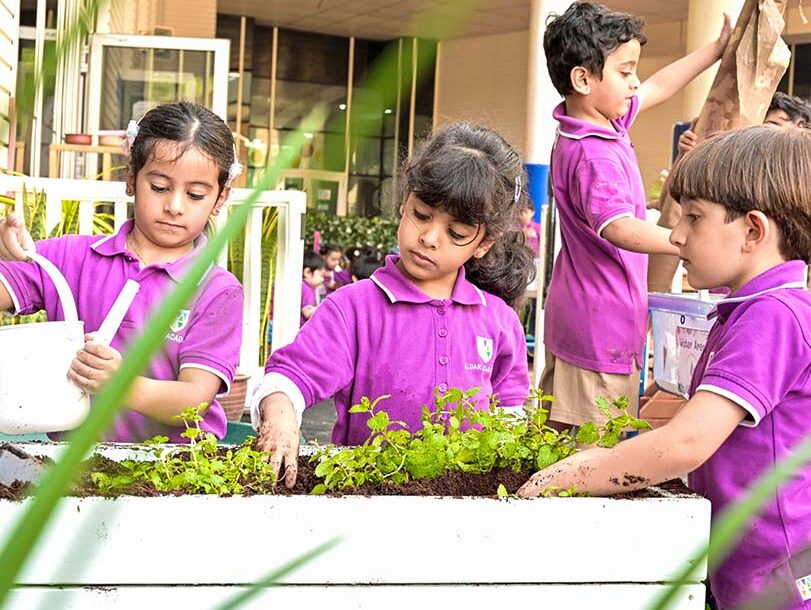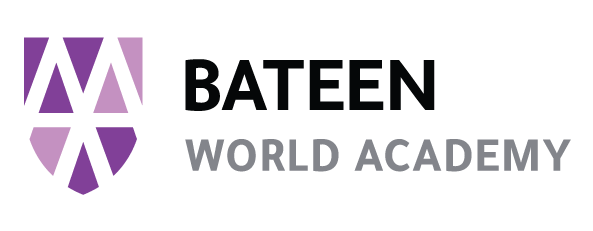The International Baccalaureate Primary Years Programme (PYP) & Reggio Inspired Approach
At Bateen World Academy we embrace the supreme qualities of the Reggio approach, which are embedded under our rigorous IB PYP framework, promoting active independent lifelong learners.
The Reggio approach focuses on the whole child, while helping to establish an identity and a relationship with nature and the world around us. Children explore through natural and sustainable resources, and have the freedom to allow their curiosity to flourish, whilst having continuous support from adults.
The International Baccalaureate® (IB) Primary Years Programme (PYP) for children aged 3 – 12 nurtures and develops young students as caring, active participants in a lifelong journey of learning. Through its inquiry-led, transdisciplinary framework, the PYP challenges students to think for themselves and take responsibility for their learning as they explore local and global issues and opportunities in real-life contexts.
The PYP balances the acquisition of significant and relevant knowledge and skills, the development of conceptual understanding, the formation of personal, positive attitudes and the capacity to take responsible actions.
The PYP:
- Addresses students’ academic needs and their social and emotional well-being.
- Encourages students to develop independence and to take responsibility for their own learning.
- Supports students’ effort to gain understanding of the world and to function effectively within it.
- Helps students to establish personal values as a foundation on which international mindedness will flourish.
For further information about the IB Primary Years Programme, visit www.ibo.org


Key Elements

Knowledge

Concepts

Skills

Learner Profile

Action
The six subject areas
The most significant and distinctive feature of the IB Primary Years Programme are the six transdisciplinary themes. These themes provide IB World Schools with the opportunity to incorporate local and global issues into the curriculum and effectively allow students to “step up” beyond the confines of learning within subject areas.
- Who we are – Inquiry into the nature of the self; beliefs and values; person, physical, mental, social and spiritual health; human relationships including families, friends, communities, and cultures; rights and responsibilities; what it means to be human.
- Where we are in place and time – Inquiry into orientation in place and time; personal histories; homes and journeys; the discoveries, explorations and migrations of humankind; the relationship between and the interconnectedness of individuals and civilizations, from local and global perspectives.
- How we express ourselves – Inquiry into the ways in which we discover and express ideas, feelings, nature, culture, beliefs and values; the ways in which we reflect on, extend and enjoy our creativity; our appreciation of the aesthetic.
- How the world works – Inquiry into the natural world and its laws, the interaction between the natural world (physical and biological) and human societies; how humans use their understanding of scientific principles; the impact of scientific and technological advances on society and on the environment.
- Sharing the planet – Inquiry into rights and responsibilities in the struggle to share finite resources with other people and with other living things; communities and the relationships within and between them; access to equal opportunities; peace and conflict resolution.
- How we organise ourselves – Inquiry into the interconnectedness of human-made systems and communities; the structure and function of organizations, societal decision-making; economic activities and their impact on humankind and the environment.
The PYP presents schools with a comprehensive plan for high quality, international education.
It provides schools with a curriculum framework of essential elements — the knowledge, concepts, skills, attitudes, and action that young students need to equip them for successful lives, both now and in the future. Schools work with the five elements to construct a rigorous and challenging primary curriculum for international education. The PYP aims to create a curriculum that is engaging, relevant, challenging and significant for learners in the 3–12 age range. The curriculum is transdisciplinary, meaning that it focuses on issues that go across subject areas. The PYP is organized according to:
- The written curriculum, which explains what PYP students will learn.
- The taught curriculum, which sets out how educators teach the PYP.
- The assessed curriculum, which details the principles and practice of effective assessment in the PYP.
IB learners strive to become inquirers, knowledgeable, thinkers, communicators, principled, open-minded, caring, risk-takers, balanced, and reflective. These attributes represent a broad range of human capacities and responsibilities that go beyond intellectual development and academic success.
